To learn from and build the capacity of existing community-led activities, this sub-programme undertook action research working in informal settlements in Sierra Leone and Indonesia. Scoping of community-led solutions to AT, researching community-led practice; and developing mechanisms for the amplification of the views of AT users to inform the rest of the programme, this sub-programme was led by the Development Planning Unit (DPU) at UCL with input from Leonard Cheshire.
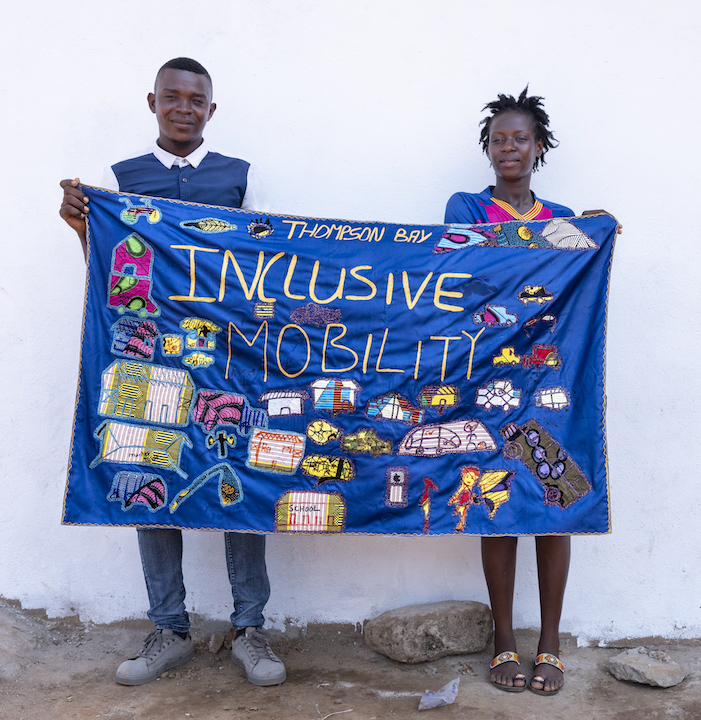
(Amadu and Sento in Sierra Leone - image by Angus Stewart)
Researchers from the Development Planning Unit at UCL, along with Leonard Cheshire, are working with the GDI Hub in an exciting programme working with communities living in conditions of informality in Freetown, Sierra Leone and Banjarmasin, Indonesia. Working with the Sierra Leone Urban Research Center (SLURC) and Kota Kita, based in Solo city in Java, the research team undertook participatory research with disabled people and community organisation in the settlements to understand how disabled (and non-disabled) people are already working to pursue their aspirations, and whether, and how, AT can help them achieve their goals in the future.
The overarching research question is “How can collective, and community-led responses, enable disabled people to access better life outcomes, through increasing the relevance and uptake of AT?”
The project works through a process of knowledge co-production and is divided in two broad phases:
Phase 1 (2019-2020): Mapping selected aspirations of people with and without disabilities in the partner communities, and the existing community-led responses that support the attainment of these.
Phase 2 (2020-21): Co-production and trailing of Assistive Technology interventions relevant to the aspirations and community support environment mapped out in Phase 1.
Phase 1:
In order to get a better understanding how low-income users access AT, we conducted two pieces of supplementary research; four Rapid Assistive Technology Assessment (rATA) surveys and two Informal AT Market Studies. The aim of the AT Market Studies studies was to supplement the AT Country Capacity Assessments being piloted by the Clinton Health Access Initiative (CHAI), using the WHO (World Health Organization) ATA-C (Assistive Technology Assessment - Capacity) tool, developed with the support of the (GDI Hub).
The rATA surveys were conducted using the new WHO Rapid Assistive Technology Assessment (rATA) tool, to gather data from 4,000 people in the four project communities for rapid evaluation of the need, use, supply and impact of Assistive Technology.
COVID-19
Between April and August 2020, we conducted a COVID-19 response and research on the impact of the pandemic on disabled people and older people living in informal settlement in Sierra Leone and Indonesia.
We found that disabled people often saw the impacts of COVID-19 as similar for disabled and non-disabled residents, such as loss of income and poorer access to basic supplies.
However, distinct effects on people with disabilities also emerged, including:
- Loss of livelihoods: Many disabled people depend on begging or practice trades which are greatly affected by social distancing (for example, masseurs with visually impairments in Indonesia). Lower income decreases access to food and water.
- Reduced educational opportunities: In Indonesia, parents of disabled children have found it difficult to adapt to online teaching, having to modify learning materials and cope without sign language support.
- Unequal access to government support: In Sierra Leone, only recognised disabled groups received support, overlooking many residents of informal settlements. In Indonesia, the bureaucracy around government cash transfers has been a barrier for many disabled people.
- Limited social life and capacity to organise: In Indonesia, social distancing has seen activities for disabled people cancelled; many cannot afford internet access to join online alternatives. Risk of infection has also limited the chances for disabled people’s organisations (DPOs) to meet or provide in-person support.
- Poor access to information: In Indonesia, signage about social distancing is not accessible for people with a visual impairment, causing even more difficulties for using public space.
Latest
-
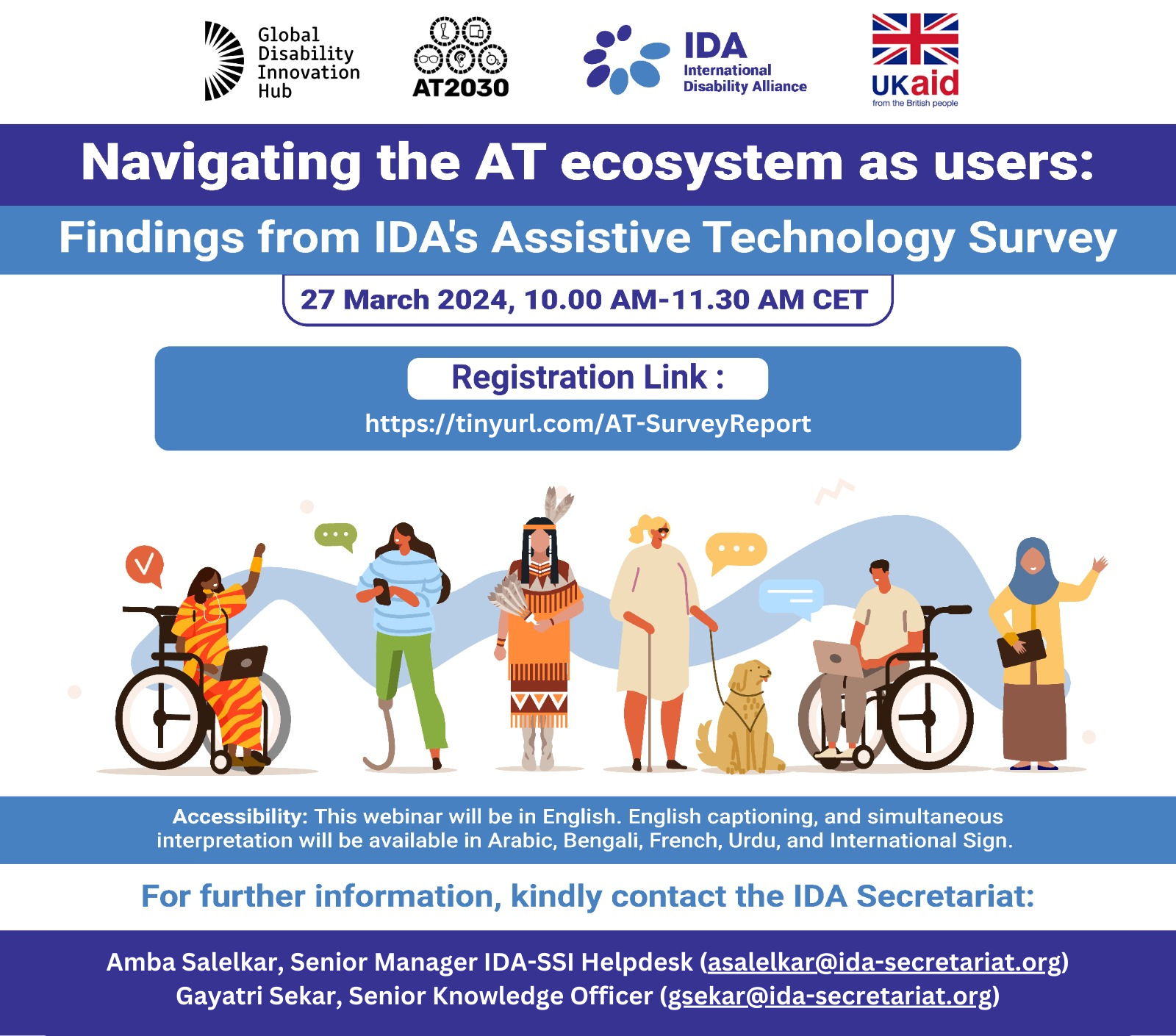
Assistive Technology Survey - launch event
Global Disability Innovation Hub, International Disability AllianceMarch 27, 202410amThe Assistive Technology Survey aimed to collect data on the general prevalence of assistive products and AT needs among AT users and potential users, pinpointing and identifying the barriers that limit the access to AT in LMICs. Join the launch to hear more on the findings of this important report.
-
Global Assistive Technology User Network - launch events
International Disability AllianceMarch 26, 20247am CETInternational Disability Alliance, Global Disability Innovation Hub, UK aid funded AT2030 programme and ATscale, the Global Partnership for Assistive Technology are delighted to be launching the Global Assistive Technology User Network, a global platform for collaboration, networking, exchange and conversation about Assistive Technologies.
-
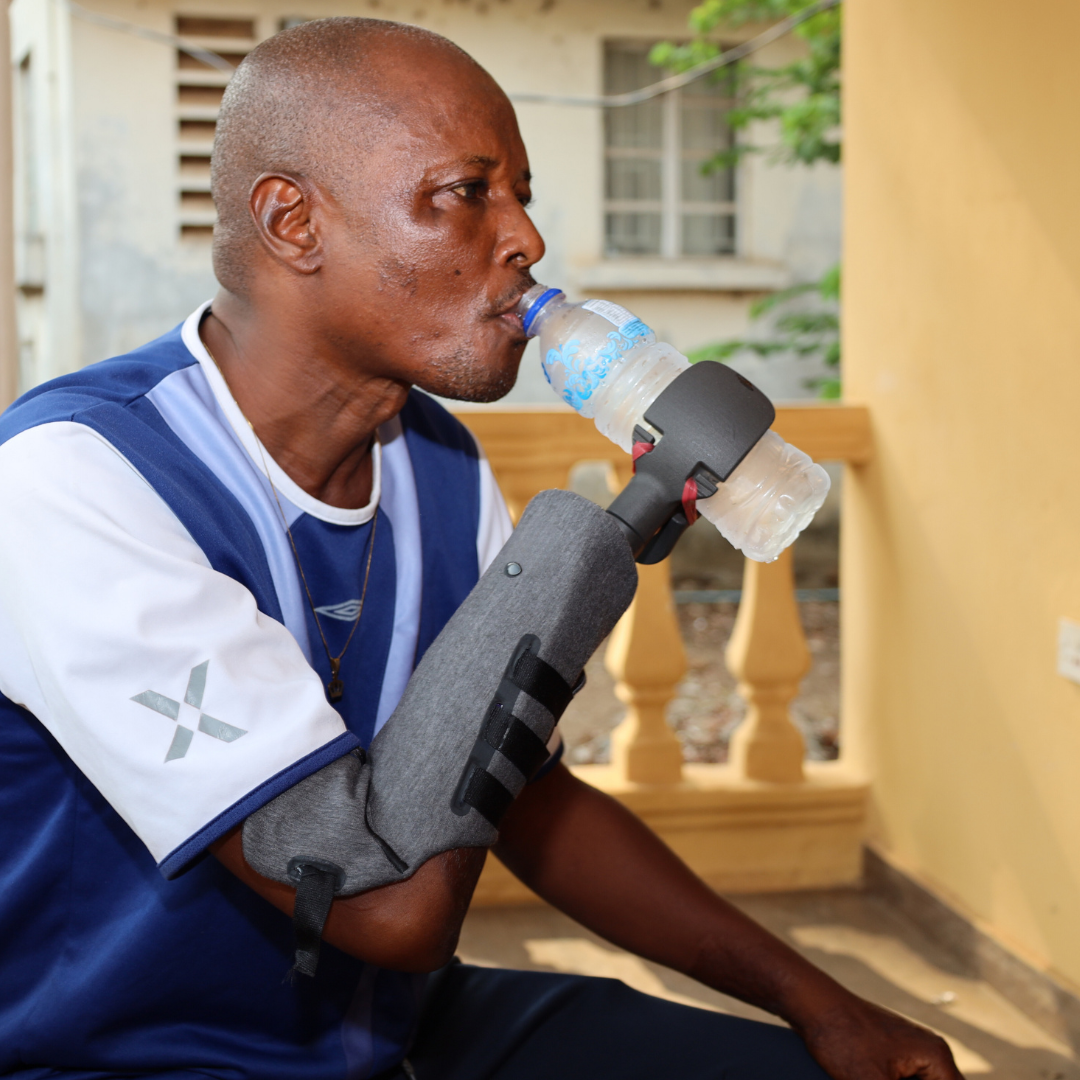
GDI Hub at Conference of State Parties (COSP) - exploring ‘What Works’ to improve access to life-changing Assistive Tech (AT) for all
Global Disability Innovation HubJune 4, 2023United KingdomFive years ago we began to test something new. Bringing together key stakeholders and experts working across the AT arena, with the aim of enabling researchers, innovators and AT users to experiment with new ideas. Join Global Disability Innovation Hub, His Majesty's Government United Kingdom (UK), The World Health Organization and in partnership with UNICEF, ATscale and The International Disability Alliance for a unique insight into testing and backing new approaches.
-
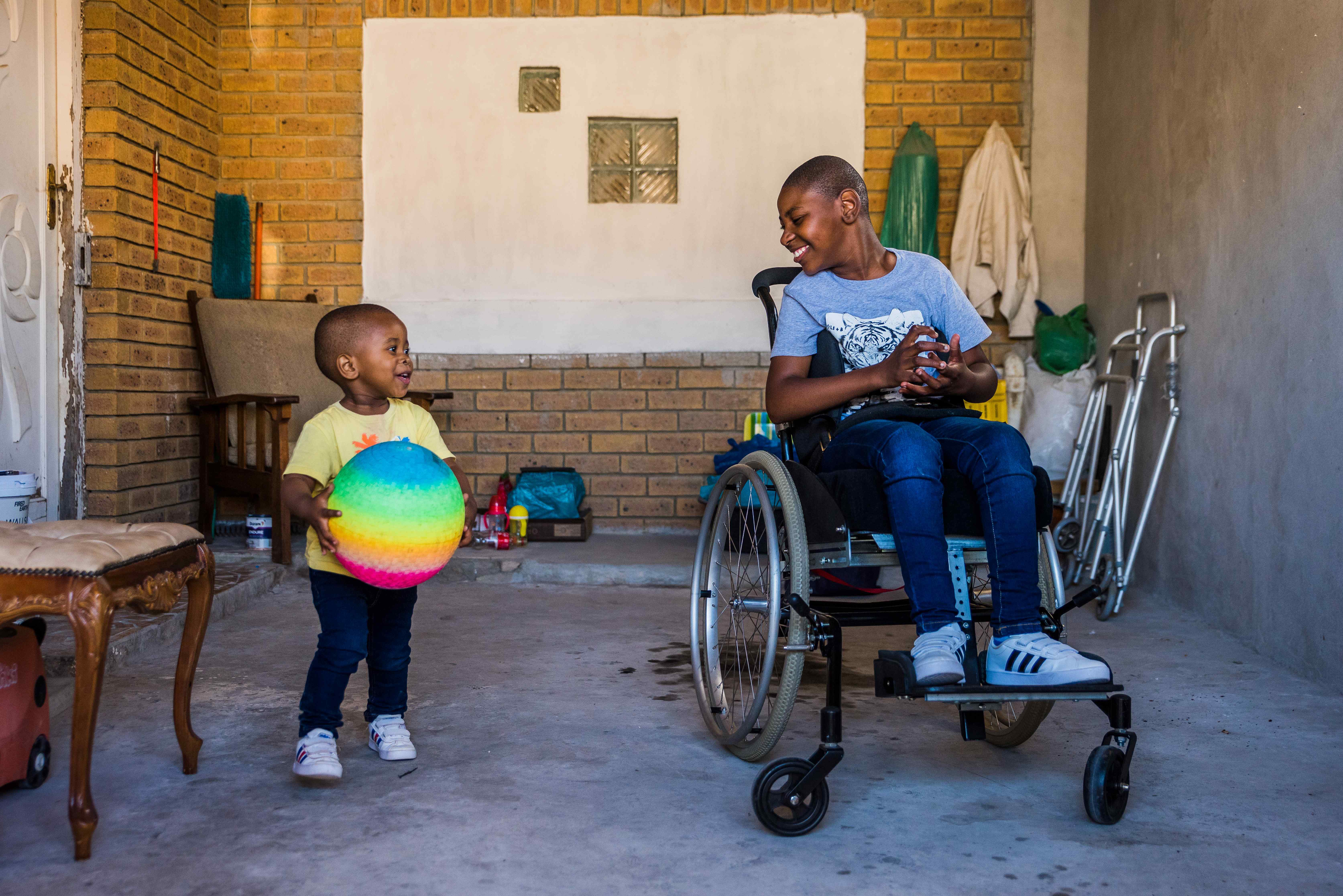
Assistive technology access gets a boost thanks to £12 million investment from the LEGO Foundation, five years after AT2030 begins
Global Disability Innovation Hub, Clinton Health Access Initiative, Vicki Austin, Frederic SeghersMarch 2, 2023The partnership between GDI Hub and CHAI has been a great example of how complementary capabilities and experiences can fuel transformational change. In this blog we explore more on the history and future of collaboration, and how we are working together to drive access and impact of AT globally.
-
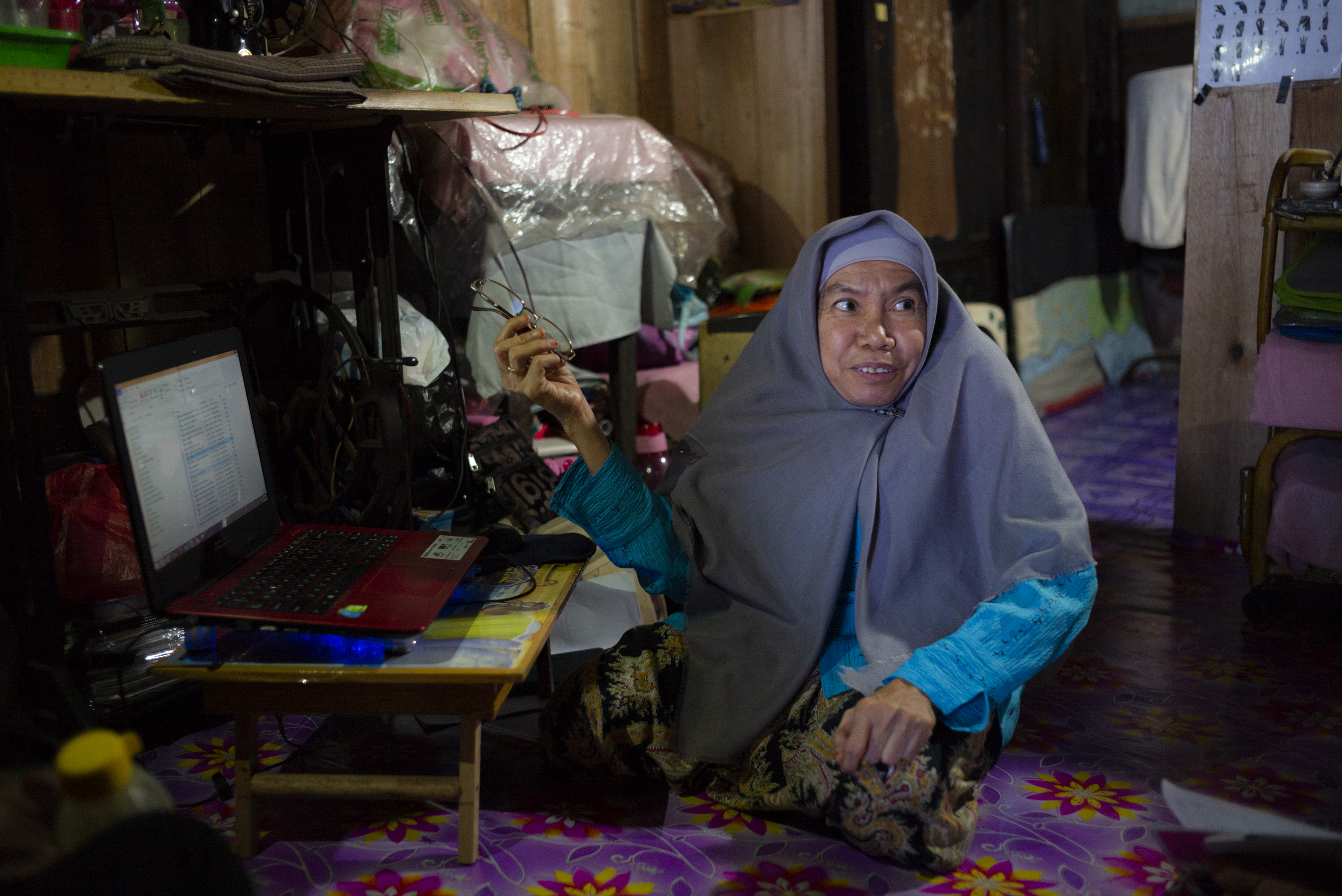
Video: Inclusive Public Space in Kelayan Barat
Kota KitaFeb. 13, 2023IndonesiaThis video takes a look at the constructed public space in Kelayan Barat. Residents and stakeholders share the experience of designing and constructing the inclusive public space, some of the challenges they encountered along the way and the impact it has had on the community.